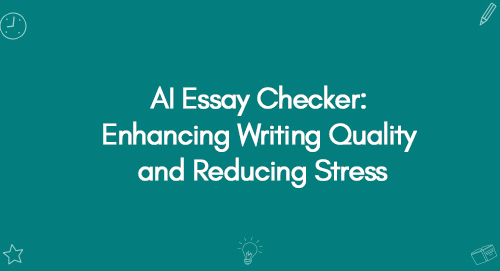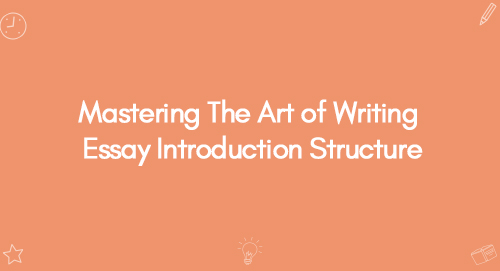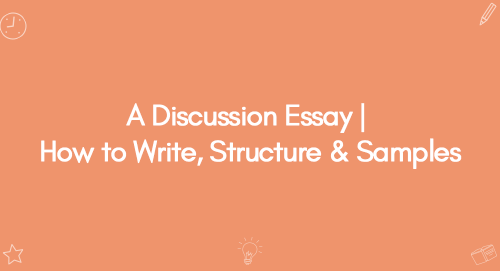Analytical Essay Example | Common Mistakes to Avoid and Tips
Analytical Essay Example | Common Mistakes to Avoid and Tips
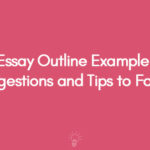
Essay Outline Example | Suggestions and Tips to Follow
February 28, 2024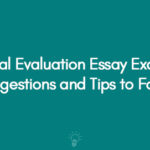
Critical Evaluation Essay Example | Suggestions and Tips to Follow
March 5, 2024An analytical essay is a form of writing that examines and interprets a specific topic or subject matter. Analytical essays present an in-depth understanding or interpretation of the subject, often breaking it down into its components and examining these parts.
Learn How to Start an Evaluation Essay
This comprehensive guide provides valuable insights and practical examples to assist writers in crafting effective analytical essays. Precision, critical analysis, and clarity are emphasized, offering a roadmap for those seeking to enhance their analytical essay writing skills.
You may also like to review
Example: 1 Descriptive Essay Examples
Example: 2 Healthcare Essay Examples
Analytical Essay Examples To Help You Write Strongly
Here, two analytical essay examples are presented to illustrate the application of analytical techniques.
A Distinctive Analytical Essay Example
The first example delves into the symbolism of light and darkness in Shakespeare's "Macbeth," giving insights to writers for enhancing their analytical essay writing skills.
Title: The Symbolism of Light and Darkness in Shakespeare's "Macbeth"
Introduction
William Shakespeare's "Macbeth" is a play rich in symbolism, and one of the most prominent motifs is the interplay between light and darkness. This essay explores how Shakespeare utilizes the contrast of light and darkness to underscore the themes of good versus evil, moral decay, and the psychological transformation of the protagonist, Macbeth.
Thesis Statement
The pervasive symbolism of light and darkness in "Macbeth" is a powerful narrative device, guiding the audience through the moral complexities of the characters and providing insight into the play's deeper thematic undercurrents.
Body Paragraph 1
In the opening scenes, Shakespeare establishes light as a symbol of goodness and order, while darkness is associated with chaos and venom. However, as the play progresses, this dichotomy becomes increasingly blurred. For instance, the nighttime murder of Duncan, initially shrouded in darkness, is later illuminated by the guilt-ridden conscience of Macbeth. This blending of light and darkness highlights the moral ambiguity and the deceptive nature of appearances.
Body Paragraph 2
As Macbeth succumbs to his ambitious desires, the symbolism of darkness intensifies. His soliloquies and interactions with other characters reflect his metaphorical journey into darkness. The pivotal moment occurs in Act III when Macbeth exclaims, "Light thickens, and the crow / Makes wing to the rooky wood." Here, the imagery of thickening darkness mirrors Macbeth's moral decline and the escalating violence in the narrative.
Body Paragraph 3
Lady Macbeth, initially associated with the darkness of her ambitions, eventually succumbs to guilt and madness. Her sleepwalking scene, famously invoking the metaphor of trying to "out damn spot," reveals the inescapable consequences of moral transgressions. The symbolism of light and darkness becomes a poignant reflection of her internal struggle and the irreversible impact of their misdeeds.
Conclusion
Shakespeare masterfully employs the symbolism of light and darkness in "Macbeth" to convey the complexities of morality and human nature. The gradual blurring of these symbols throughout the play is a metaphor for the characters' descent into moral ambiguity and the inevitable consequences of their actions. As the audience navigates the interplay of light and darkness, they gain profound insights into the tragic unfolding of this timeless Shakespearean tale.

Another Analytical Essay Example
The second example explores the social commentary in George Orwell's "1984, and serves as a valuable resource for writers, offering practical guidance and examples to navigate the complexities of this form of academic essay writing.
Title: The Social Commentary in George Orwell's "1984"
Introduction
George Orwell's dystopian novel "1984" is a powerful commentary on the dangers of totalitarianism and the manipulation of truth. This essay explores how Orwell employs literary devices and narrative techniques to depict a society where the control of information and language is wielded to maintain oppressive authority.
Thesis Statement
Through symbolism, irony, and a meticulously crafted narrative, Orwell highlights the chilling consequences of a society stripped of individuality and subjected to the manipulation of language in "1984."
Body Paragraphs
Symbolism of the Party's Slogans
Orwell introduces the Party's slogans, "War is Peace, Freedom is Slavery, Ignorance is Strength," as a powerful manifestation of the manipulation of language. Each slogan represents a paradoxical idea designed to control the thoughts and beliefs of the citizens. Using these slogans as propaganda tools underscores the theme of linguistic manipulation as a means of maintaining authority.
The Irony of Newspeak
Orwell introduces the concept of Newspeak, a language designed to eliminate unorthodox thoughts, in a strikingly ironic manner. While it claims to simplify and clarify language, Newspeak's true purpose is to limit the range of thought and eliminate the possibility of dissent. The irony lies in the fact that the simplification of language is, in reality, a tool for intellectual repression.
The Subversion of Individualism
Through the character of Winston Smith, Orwell explores the impact of linguistic manipulation on individuality. The constant rewriting of historical records and the elimination of words that express rebellious thoughts contribute to Winston's sense of self-erosion. Orwell illustrates how language control is instrumental in the subversion of individualism and the suppression of dissenting voices.
Conclusion
In conclusion, George Orwell's "1984" serves as a stark warning against the dangers of unchecked authority and the manipulation of language. Through the symbolism of slogans, the irony of Newspeak, and the depiction of the subversion of individualism, Orwell crafts a compelling narrative that remains relevant in exploring the consequences of linguistic control. As readers navigate the bleak landscape of Oceania, they are confronted with the enduring message that the manipulation of language is not merely a tool for communication but a potent weapon used to shape and control the very thoughts of a society.
Final Notes to Remember: Tips
To write a good analysis paper, you need to follow the steps and pay close attention. Here are some valuable tips to help you craft a compelling analytical essay:
- Focus on Your Topic
Pick a particular subject or part for deep study instead of something wide.
- Research Deeply
Get trustworthy information and proof to back up your thinking.
- Create a Well-Structured Outline
Arrange your essay with a straight introduction, middle part, and ending.
- Analyze Analytical Essay Example
Try not to shorten the topic; instead, carefully look at and understand it.
- Use Clear Topic Sentences
Begin each portion with a simple sentence that connects to your main idea.
- Provide Evidence
Back up your study with words from your research, instances and facts.
- Use Critical Thinking
Make sure you apply critical thinking skills to challenge ideas and look at different viewpoints.
- Maintain Clarity
Make a selection of simple words to make your points understood well.
Free Premier Essay Writing Topics
Essay Writing is an essential part of academics which presents the ideas, arguments, opinions, or positions of the writer regarding the topic. The writer supports his claims using facts, evidence, or survey studies.
- Clear presentation or understanding of the type of essay
- An appealing introduction with an unambiguous thesis statement
- A well-defined structure of body paragraphs supporting the thesis
A prospective conclusion with an optimistic tone
Common Errors to Avoid in Analytical Essay Writing
Here are some common errors to avoid in analytical essay writing.
An Unclear Thesis
Don't forget to give a clear and specific idea in the essay that shows what it is mainly about or its goal. Write a clear thesis statement at the start of your essay to help guide it. Also, make sure readers know where you stand on an issue.
Superficial Analysis
Do not take a quick and easy look without going deep into the text or topic. Take the time to study and understand what you're reading. Look closely at it and find the small parts that are hard or complicated. When sharing your thoughts with others, use this approach to give a deeper view of things.
Overuse of Quotations
Don't use too many direct quotes without giving enough explanation or understanding. Use quotes less often and show how they relate to your main idea. Make connections between each quote, showing why it's important for your argument.
Inconsistency in the Tone of Analytical Essay Example
An Analytical Essay Example must have a consistent tone and style to keep the essay flowing smoothly. Keep the same style throughout your writing, being official but interesting and easy to understand. This will make it better for reading.
Repetition of Ideas
Avoid saying the same things or making similar arguments without bringing new thoughts and ways of seeing things. Keep trying to give new views, and don't repeat what has been said. Make sure every part of your text helps to make your point better.
Conclusion
In conclusion, the analytical essay is a potent tool for honing your skills and conveying your understanding of complex subjects. If you are assigned to write an analytical essay, take help from the examples mentioned above.


